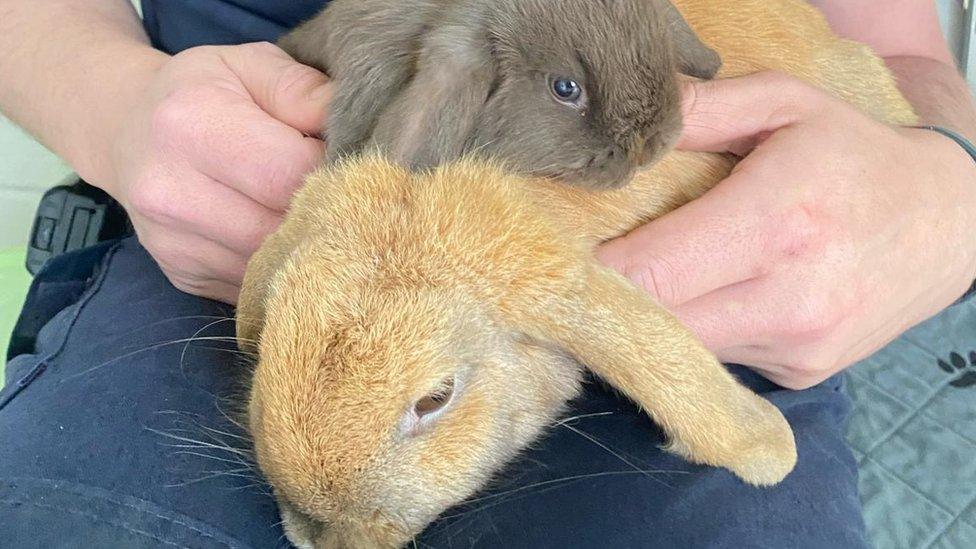The joy and heartbreak of fostering abandoned pets
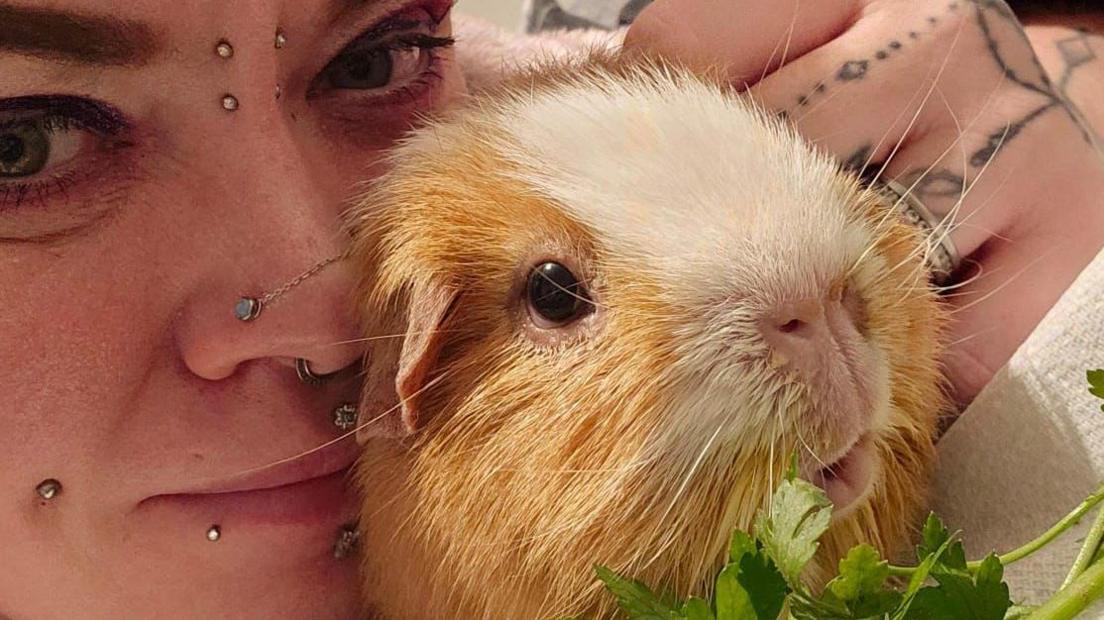
Jo Hazel has helped more than 100 animals in her role as an RSPCA fosterer
- Published
Every year, animal charities take in thousands of abandoned or unwanted pets, always hoping to find a new, loving forever home for them.
With fewer animal shelters, and some pets simply not thriving in that environment, they turn to foster carers to look after them until the right person comes along.
The RSPCA covers expenses for any of its animals in foster care - such as supplies, travel, vet visits and medication.
But, what does it take to be a foster carer - what do you have to do and how difficult is it to say goodbye when you have cared for an animal for so long?
'An amazing feeling'
Jo Hazel (pictured above) is a professional body piercer from Houghton Regis in Bedfordshire.
She has been fostering small animals - rabbits, guinea pigs, gerbils, mice and rats - for two-and-a-half years and has looked after more than 100 so far.
"I've always loved all animals, but thought animal fosterers just looked after cats and dogs," she says.
"I never realised the small furry animals were so desperate.
"I applied to my local RSPCA branch and Hugo the hamster was my first foster, and also my first fail - because I adopted him and he stayed with me."
A "foster fail" is the term used by charities when the carer becomes so attached to the animal that they cannot bear to give it up - so end up adopting it themselves.
"Some come in from very bad situations - hoarding, overbreeding, dumped - and some come in just because their owners' circumstances have changed. Being able to give them a safe home, where they are loved, looked after, vet-checked, vaccinated, neutered if needed, is an amazing feeling.
"Making sure they are going to the best homes is super important and watching them leave to their forever homes can be sad, but amazing to know they will be loved even more."
'Renowned foster failure'
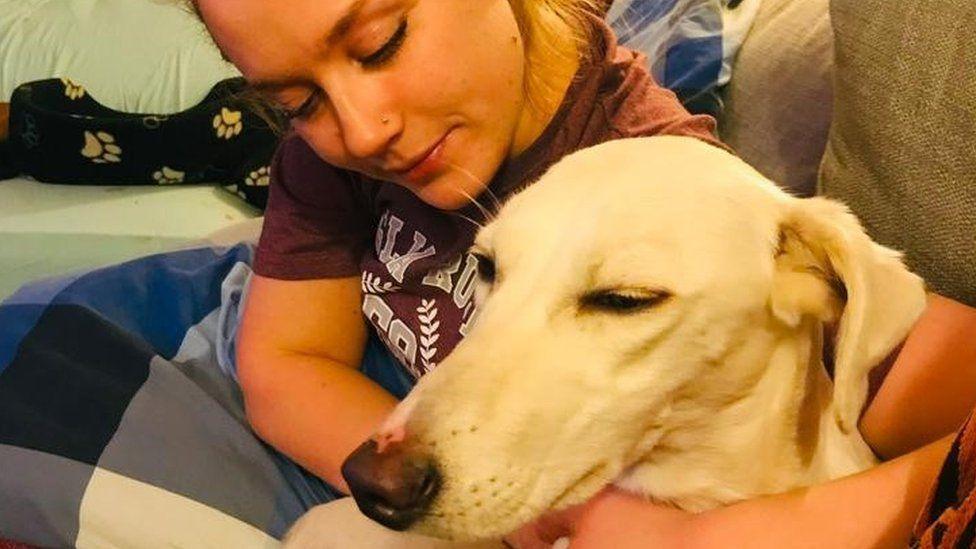
Anna Forrester has taken in countless animals to care for under the RSPCA's foster scheme
Anna Forrester has been working with animals since she was 14 and is an assistant at a vets' surgery in Cambridge.
"I genuinely don't know how many animals I have fostered in my life - it's easily triple figures. My boyfriend and I have dedicated our lives to helping animals and have no intention of stopping," she says.
"Fostering animals is both rewarding and challenging as many animals come into my care with their own emotional or physical hurdles to face.
"It's a wonderful feeling to guide and support them through their own individual journeys and place them in their forever homes at the end. It's always sad to see them go but you can't keep them all if you want to keep helping other animals in need."
She describes herself as a "renowned foster failure" with "several waifs and strays who have stayed with me".
She adds: "Even when you have the best intentions, it's important to not exceed your caring capacity so that animal welfare isn't compromised."
'Respite breaks'
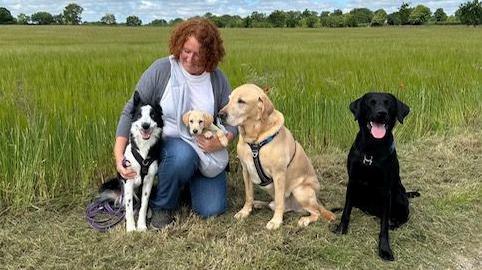
Viv Moore has fostered numerous dogs and is an animal behaviourist
Viv Moore, from Necton in Norfolk, is an animal behaviourist and also works at the RSPCA's shelter near King's Lynn.
So far this year, she and her daughter Charlotte have fostered 13 dogs - sometimes to offer the animals a "respite break" from the kennels.
She also has several dogs permanently, with her first "foster fail" being a border collie puppy called Rosie.
"She was underweight, in a sorry state and very traumatised.
"I did lots of enrichment with her - she was pretty terrified from her past and she's still got some trauma which has stuck - but she's come an awful long way and is just a super dog."
'Not a try before you buy'
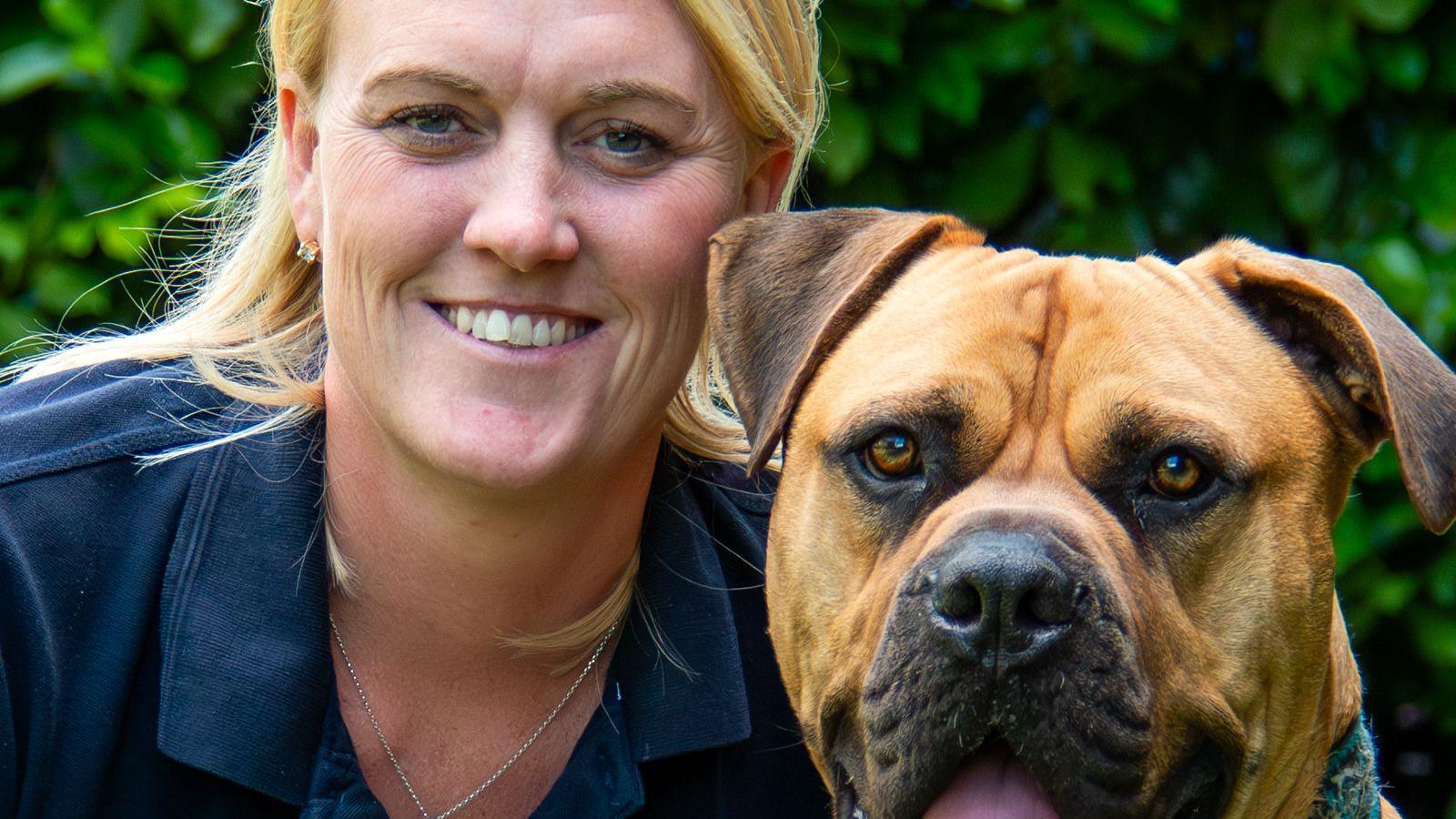
Sam Garvey now helps to vet those who want to become fosterers
Sam Garvey, a former RSPCA inspector, now manages the charity's Danaher Animal Home in Wethersfield, Essex.
She has been fostering animals for 17 years and also manages the centre's list of fosterers.
"Fostering isn't easy - it's not a case of try before you buy," she says.
"Some of the animals have behavioural issues and it's important to get them into a home environment so we can see if they are just not happy in kennels.
"It's vital that people enter into fostering for the right reasons - you need to be observant, realistic and patient."
She also admits to being a "foster fail", having taken on six dogs full-time out of about 40 she has looked after.
She has also kept all three horses she has fostered.
"I ask myself this really important question each time. Is there a better home for this animal? A quieter home than mine?"
'My heart breaks a bit'
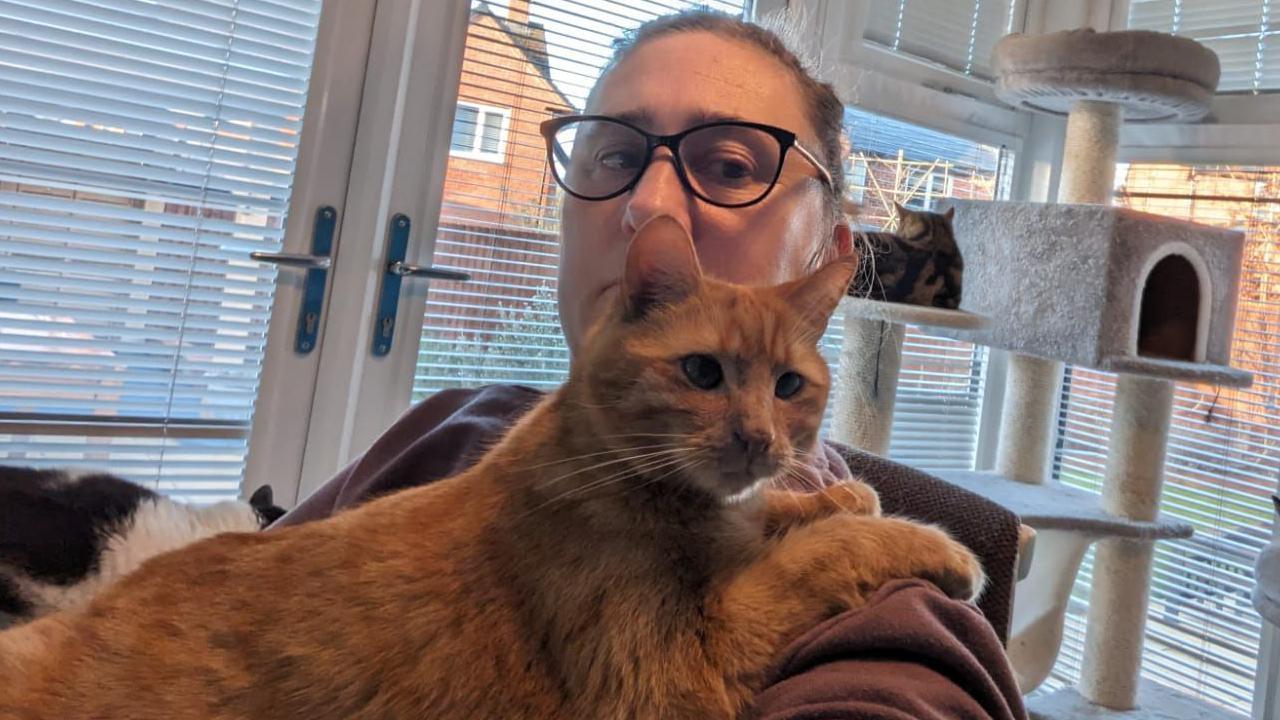
Claire Craig says fostering is now part of "who I am"
Claire Craig works for an engineering firm in Ampthill, Bedfordshire, and has been fostering with the RSPCA for eight years.
"I foster approximately three families of cats and kittens per year, and my maths says that's 24 cats and 96 kittens," she says.
Although she is now a seasoned fosterer, her first attempt was another "fail".
She ended up keeping kitten Whisky, who had been rescued by the charity from a house with 74 cats.
"I foster, because who doesn't love a cute family of kittens - they are amazing therapy."
She adds: "I get so attached to every foster, that when they go I often cry, and my heart breaks a bit."
'A rehoming crisis'
The RSPCA says it is facing "a rehoming crisis".
Its figures show that in 2023, 42% more animals arrived at the RSPCA than were adopted.
One way to tackle this crisis is through the use of foster carers, who "do an incredible job giving up their time and their home [which] can make a huge difference to an animal's life, especially those who do not do well in kennels or catteries", it says.
Becca Sparks, the charity's fostering manager, says: "Fostering is incredibly valuable to ensuring the animals we rescue get the specialist and individual care that they need - and it offers a lifeline for vulnerable animals who might really struggle in an animal centre environment."
Get in touch
Do you have a story suggestion for Beds, Herts & Bucks?
Follow Beds, Herts and Bucks news on BBC Sounds, Facebook, external, Instagram, external and X, external.
Related topics
- Published26 November 2024
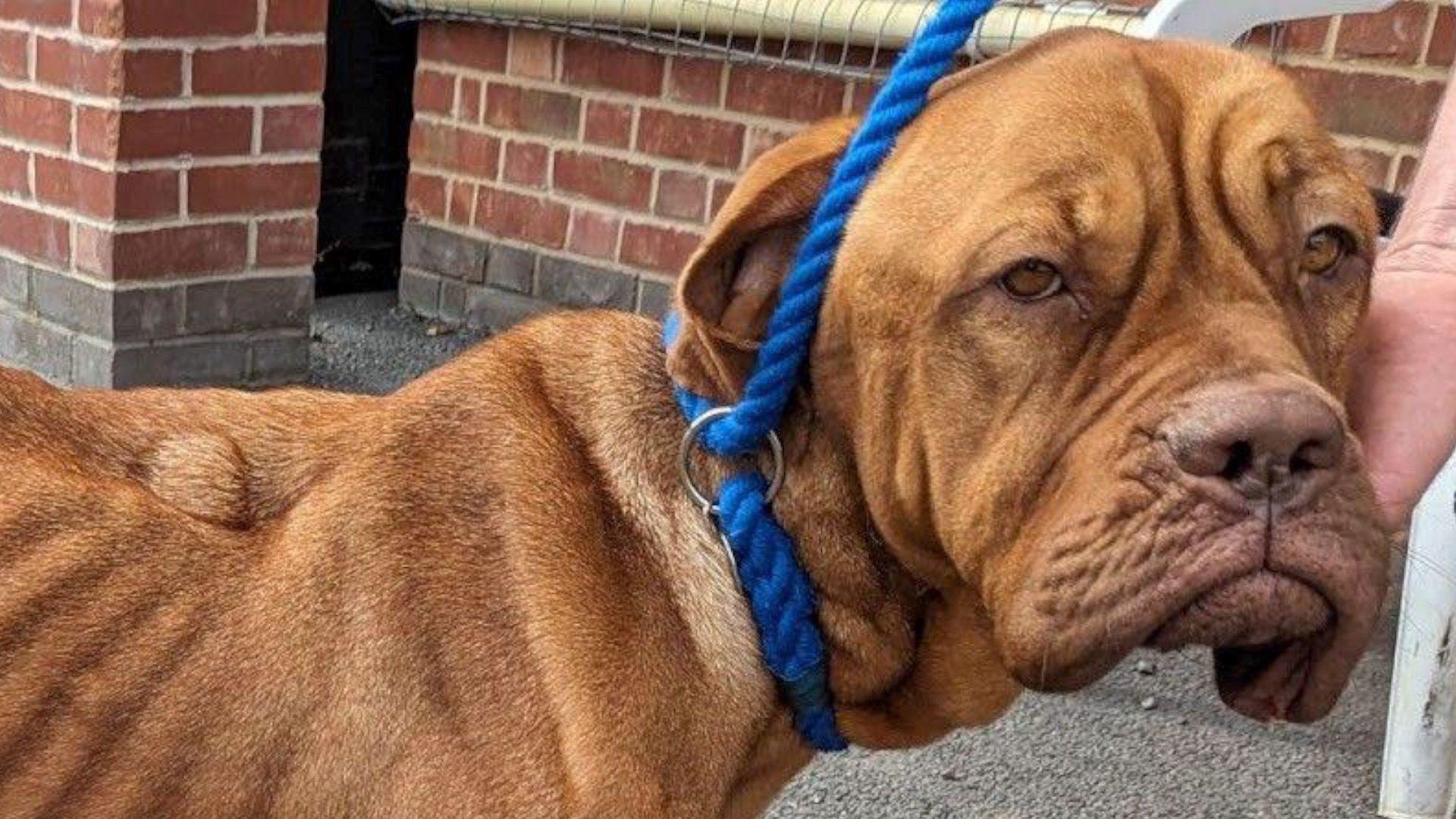
- Published29 August 2024
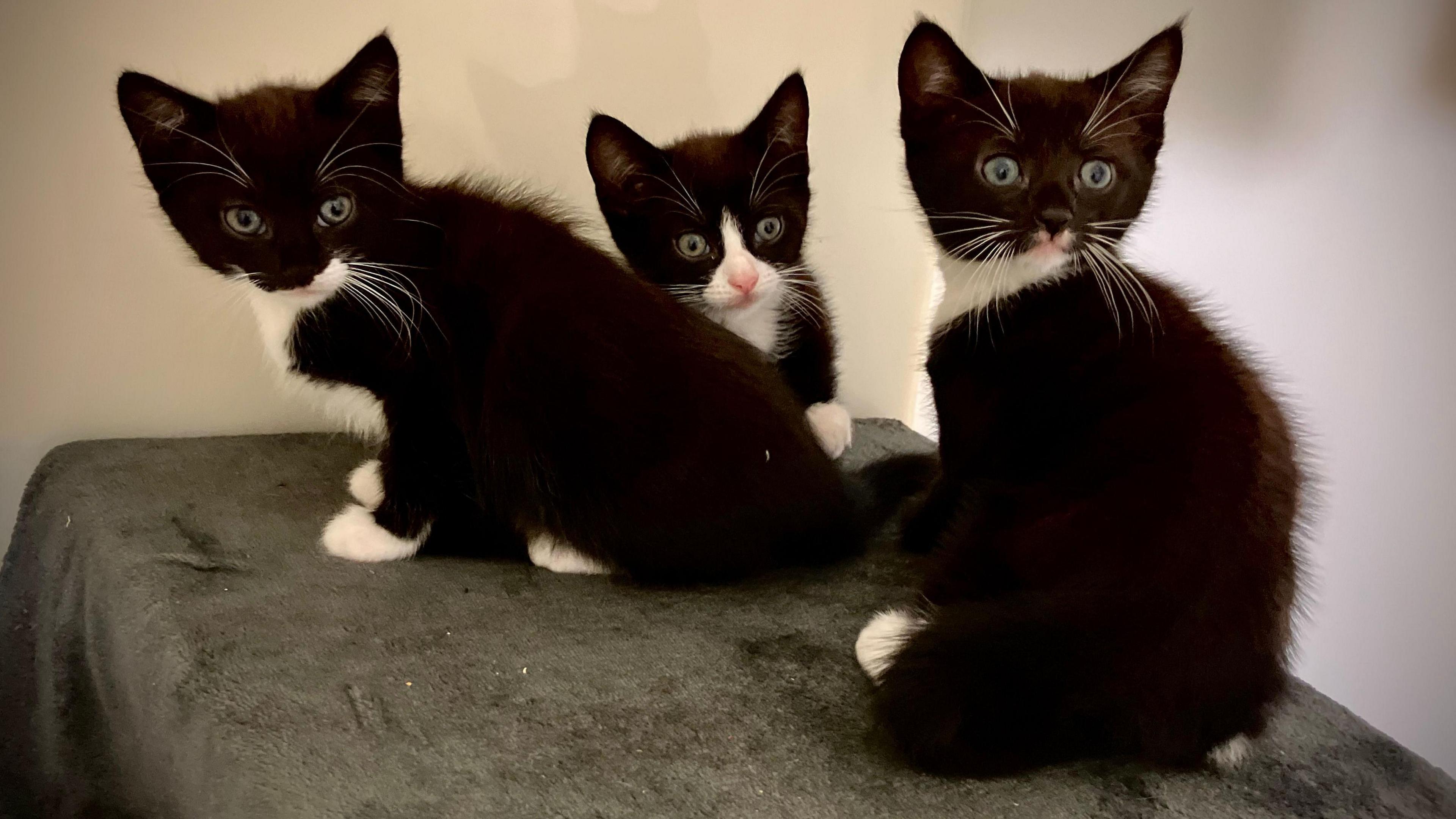
- Published1 March 2024
